- Home
- Lisa Kleypas
Wish List Page 19
Wish List Read online
Page 19
“I must marry,” Beau said easily, still looking at Clarissa. “Your sister has a look about her… Will you make the introductions? I’ve looked enough; ‘tis time to take the first step.”
“I will not,” Dalton said stiffly. “You and Clarissa would not suit at all. I’m surprised you would suggest it, even more surprised that you can’t see it for yourself.”
“I beg your pardon?”
Beau looked stupefied. Dalton couldn’t have been happier.
“She’s a sheltered girl, hardly out of the country, and as innocent as rain. A man as experienced as you with a girl like that? You’d have nothing to say to each other inside of five minutes. Besides, as you said, she’s a fine-looking girl; she could do quite well for herself this season. Isn’t Halston looking for a bride this year? He’s got Haverly to offer. Must be worth more than—”
“Montwyn Hall is no shabby cottage on the edge of a field, Dalton,” Beau cut in. “And Halston is almost forty. You’d encourage a match with a man twice her age?”
“And why not? He would be a stable, solid man for her.” He ended the sentence there, but both heard the unspoken insult to Beau’s maturity, solidity, and stability.
“I’m certain he would be,” Beau said coldly. With a bow, he excused himself from Dalton’s company, his anger plain.
Dalton watched him go with the faintest of smiles. Leave it to Lindley to play his hand openly, boldly encouraging Beau to offer for Clarissa. He pursued a darker course, one less plain. Nothing would set Beau after Clarissa like opposition; the man was as bored as he was himself in a sea of smiling and submissive girls. A squall would make him sit up and check his ropes. Dalton had stirred the breeze, and if he knew Clarissa, which he did, she would do the rest. If all went well, not only would Beau offer for her, he would be fairly determined to have her and none other.
Dalton smiled again at the thought of the two of them together and ducked his head until he had composed himself. He liked Beau, he truly did, and he would be a splendid match for Clarissa. Beau had an estate in Ireland, after all.
—
Determined not to indulge her sense of injustice and outrage about her inescapable fate as the wife of an Englishman, Clarissa decided to enjoy herself as well as she might in such company and circumstance. She had much to do if logic was to triumph over sentiment. With Jane beside her, they circled the room, mingling.
“He was rather… moist, was he not, Jane? I do not think that I should have to tolerate a damp husband. All the upholstery would be ruined in a month,” Clarissa said softly as they moved away from Lord Dalrimple and his sister.
“Clarissa!” Jane gasped.
“What?” she replied.
“It is not seemly to say—”
“He cannot hear me, and I do say that I should be allowed my own opinion on the matter of my husband and his odors,” Clarissa said. “Now, shall we join Lady Wolling and her son? He looks a likely sort, though a tad small for me. I should hate to outweigh my husband. Most difficult. I foresee very small and fragile children, and if they are boys… Well, perhaps we should simply bypass Lady Wolling altogether.”
Jane nodded to Lady Wolling as they passed, her eyes alight with embarrassment and horrified humor.
“Although, now I do ponder it, I do not think that man capable of siring boys. Oh well,” Clarissa said cheerily, “on to Miss Warthom and her sister, Eliza. No, never mind, I cannot stop to mingle with mere ladies. I must be about my duty to find myself a husband whom I can tolerate. A most difficult dilemma, is it not?”
“Really, Clarissa,” Jane began, her cheeks flushed and her brow as white as chalk.
“Ah, but who is that in the corner with Perry? He’s a likely looking young gentleman. Tall, well dressed, dry; why, he may be the very thing.”
“Good evening, Lady Jane,” he said with a bow.
“Good evening, Lord Stanson,” Jane said.
Perry said, “May I introduce my sister, Lady Clarissa Walingford, to you? This is her first trip to London this season.”
“My lord.” Clarissa curtsied modestly.
“Lady Clarissa,” Stanson answered. “Your first London season? And how are you finding it? An amusement, one hopes.”
“Oh, yes, I have been often amused,” Clarissa said, smiling. Stanson spoke with a slight lisp. Really, she had never heard her name pronounced so… delightfully in her life.
“How lovely,” he answered. “And what sights have you seen thus far?”
He was not bad to look upon, though he had a mole near his nose and, of course, that lisp.
“Only the dressmakers thus far, my lord, and whatever amusements can be found within this room,” she answered.
Perry grinned and took a quiet sip of his drink. Jane coughed and fussed with her shawl. Clarissa stood with complete composure, looking up at the Lord Stanson and all the amusements he offered her.
“She only came down last week,” Perry offered into a silence that was stretching out uncomfortably. “I imagine that she’ll be out more now that her wardrobe is set.”
“Perry, a woman does not care to have her wardrobe deficits discussed in public,” Clarissa said, “even if those deficits are now canceled. London has so much to offer, does it not, Lord Stanson?”
“Yes, the best shopping in all the world, I daresay. Have you tried Lackington’s shop? The best bookseller in the city. He even carries the most popular novels, which are an especial favorite with my own sisters,” Stanson said.
“Really?” Clarissa smiled too sweetly. “I shall stop there tomorrow.”
“If you will excuse us, Lord Stanson?” Jane said, steering Clarissa away. “I see Lady Morland and must compliment her on the sweetness of her tarts.”
“It is not her tarts that concern you,” Clarissa said when they had left Stanson behind to resume his conversation with Perry.
“No, it is the tartness of your tongue. Were you going to tell him that you do not read novels?” Jane asked.
“Why would I be so rude when he was only trying to help me find proper London amusements?” Clarissa asked in return. “Really, Jane, you must think me a horrid child to have such fears concerning my deportment.”
“Well,” Jane huffed. “I do apologize. It is only that you do seem to be possessed of an uncertain temper tonight, when the evening is so lovely.”
“Temper? I have no temper,” Clarissa said somewhat stiffly.
“And the scar on Braden’s hand did not come from the cup you threw at him?”
Clarissa lifted her chin in annoyance. “If all my childhood indiscretions are to be laid at my feet, I shall surely stumble. But do not all children fight?”
“Clarissa, it was but two years ago,” Jane said dryly.
“And I was sorely provoked, if you will also recall,” Clarissa defended.
Braden, home on leave from his regiment, had thrown her cat out of the window for making a bed for itself on his sleeping face. And she was the one accused of having a temper?
“Your pet was fine. She landed on her feet, as cats will do.”
“I do not see how it pertains. It was most unreasonable of him to react so violently to a sleeping cat.”
“Ah, Fanny,” Jane said, ending the budding argument, “what a lovely evening. You have made us all, each one, feel so very welcome.”
“You are most kind, Jane,” Fanny replied with a genuine smile. Hostessing was so very trying, and one had to think of so many details. Another guest had caught her attention and she drifted over to smile with warmth and welcome.
Perry quietly joined the ladies of his house and whispered to Clarissa, “You’re fortunate. Stanson did not realize that you mocked him.”
“If he is as obtuse as all that, then I am fortunate in finding out so soon. I will not wed a dullard.”
“You will not wed at all, if you follow your inclinations.”
“But I am not following my inclinations. I am following the course of familial duty. And I wil
l marry, Perry. You may rely upon it,” Clarissa said firmly.
Perry smiled and bowed to her. “Rely upon it I will. How do you progress?”
“Not well,” she said bluntly. “But it has been only an hour and I am not discouraged. I never buy the first hat I try, and I don’t imagine shopping for a husband to be a matter of less consequence than a hat.”
“Clarissa!” Jane remonstrated.
“Well spoken, Clarissa,” Perry said, laughing.
“Excuse me,” Fanny said, rejoining them, “but I don’t believe I’ve introduced Lord Montwyn to you.”
Clarissa turned and faced the man whom she had observed speaking to Lindley earlier in the evening. He was more forbidding when seen at close quarters, and more handsome. He knew it, too, and such arrogance, such pride, was more tempting a target than she could bear to turn from.
He bowed. She curtsied. And she waited. Such a man would feel it his right to speak first. She would allow him that, for it was she who would have the last word.
“You are new to London, Lady Clarissa,” he said.
“I am. Does it show?” she answered.
Perry snorted in amusement while Jane gathered breath to fuss and apologize.
“Actually, yes,” he answered, his smile as light and bright as a rapier.
Looking up at him, at his dark brows and his deep green eyes, his very unrepentant eyes, Clarissa felt herself smile. Finally, a worthy adversary.
“Really,” she responded. “Would it be terribly gauche of me to ask how I have… exposed myself?”
“If you will excuse me, Lord Montwyn, Clarissa,” Jane said, “I will visit with Miss Walburn.”
Montwyn bowed at her departure and then turned back to Clarissa and Perry.
“Let us not say ‘exposed,’ but rather ‘revealed.’”
“Really, I cannot say I approve of this conversation,” Perry interrupted.
“I’m certain that Lord Montwyn would not ‘expose’ me to any conversation not within the bounds of correct London etiquette. Would you?” she said.
“The bounds of etiquette shall be observed, naturally. I would do nothing to damage your reputation, Lady Clarissa.”
“My brother will be relieved to hear it,” she said.
“But not you?” Montwyn asked.
“I guard my own reputation, Lord Montwyn.”
“And she does a fine job of it, too,” Perry added.
“But this is London, Lady Clarissa,” Montwyn said, his eyes twinkling, “and you are inexperienced.”
“Rather say I am new to London, sir. I am not inexperienced.”
“No?” He smiled. “But that is how I knew you were new to town. Your naivete lights you like a candle.”
Clarissa took a breath and felt herself grow still at the raw sting of his insult. This man was different, and it was not London that made him so. His pride lit him like a bonfire, and while the light drew the eye, the heat of him was oppressive.
“I am certain you are mistaken. My education has been most complete.”
“Yet how else to explain my knowing that you were new to town?”
“Perhaps”—she smiled—”because you visit every house that will open its door to you. You were invited to Lord and Lady Morland’s tonight, were you not? I am certain that Lady Morland is too refined to have anyone thrown out. She is a most welcoming hostess.”
“Well done, Clarissa,” Perry chimed. “Not many can stand against my sister in verbal warfare, Lord Montwyn. I commend you for your bravery.”
“Is that what this is?” Montwyn asked calmly, studying her boldly.
Most aggressive, even for an Englishman. Not appealing at all, but… compelling. A most disturbing thought—she would not tolerate it or him.
“Hardly,” Clarissa said, affecting boredom with Lord Montwyn and his superiority. “I am looking for a husband tonight. Tomorrow I shall shop for books and a new pair of boots.”
“A shopping trip to London,” Montwyn summarized.
“Precisely,” Clarissa said, looking him in the eye, communicating her disdain.
“Really, Clarissa,” Perry sputtered. “I apologize, Lord Montwyn, for my sister’s—”
“Unnecessary,” Montwyn cut in. “I am here for the same reason. I need a wife.”
He looked down at her while he said it, and she felt the weight of his words and his intent hit her like a stone. He was not put off. He should have been. He was not the sort of man she was looking for, though her eyes continued to look.
Masculine power emanated from him with every breath, confusing her purpose. She searched for an acceptable husband—Montwyn commanded a response from her heart that was completely unacceptable.
“Then you’d best circulate and find one,” Clarissa said sharply.
“I am not an impulsive shopper. I like to take my time over my selections,” Montwyn said, holding her eyes.
“How odd,” Clarissa spat. “I can tell at a glance if a smock or even the merest bit of embroidered linen will suit. I know my own tastes and inclinations. Good evening, sir,” she said, and turned to go, her arm resting on Perry’s. Call it not a rout, but a wise retreat; she had to put distance between herself and Montwyn.
“But I am shopping for more than fripperies,” Montwyn said to her retreating back. “Or would you disagree?”
Clarissa turned and said over her shoulder, “Only you can know your own intent.”
“I would share it with a willing ear,” Montwyn said with a smile.
“Again I say circulate, sir, to find what you seek.”
Beau, Lord Montwyn, watched her walk away, her bearing regal, her head proud and high, the long line of her torso as graceful as a sapling in the wood.
“No need, miss,” he said softly to himself, “for I’ve found what I came to London to find.”
Chapter Two
It was a complete waste of time,” Clarissa said to Albert the next morning while helping herself to a cup of tea and a scone.
Albert sat up straighter in his chair and tugged at his waistcoat. “Kindly explain yourself, Clarissa. Do you mean to tell me that Lord and Lady Morland invited only women to their party last night?”
“They may as well have,” Clarissa said over her cup, “if what I saw last night represents the best England has to offer. I will not marry either a runt or a sweaty, odorous beast to fulfill my family obligation, and if you were a loving brother you would not ask it of me.”
“Since Henry Wakefield, Lord of Montwyn, is neither a runt nor odorous,” Perry said, coming into the room, “I would hazard that you have not made mention of your meeting with him.”
“No, I have not. Let me add him to the list: he is a boor.”
“You seemed to be enjoying your conversation with him last night,” Perry said. “At least, I was. Most entertaining.”
Most entertaining, indeed. At first, yes, she had thought so, but then his countenance had seemed to her to be so proud, so overbearing. Such a man, no matter his fine form, would not do. He was a bear of a man who would crush her for his own amusement; or perhaps it was better said that he would try to, for she would not be cowed so easily by mere rudeness, no matter the level of his offenses. Or attraction. He had been attracted to her, that much was obvious, and perhaps she could even find something admirable in his boldness. She had not frightened him; he had made that plain enough. But he was not the sort of man she had in mind, and it was her mind that would decide her future, not a pair of shining green eyes.
“You at least were entertained,” she said to Perry. “I was not. He will not do.”
“How is it that an earl will not do?” Albert asked, rising from his chair.
“Oh, he would do,” Perry chuckled, “if Clarissa had not prodded him unmercifully. She baited the man and then ran from him when he growled back.”
“I did not run. He did not growl,” she snapped.
“Good heavens, Clarissa, do not tell me that you have made a spectacle of yoursel
f in London society,” Albert said sternly. “You will not take that way out of your proper duty to marry and marry well. A union with Montwyn would be most advantageous to this family.”
“And would it be advantageous to me, Albert?” she asked. “Besides, we would not suit. His temper is uncertain.”
“Oh, I would say his temper is most certain, most predictable,” Perry said with a smile.
“Oh, Perry, do keep your remarks to yourself!” Clarissa said.
“Do not say that you antagonized Lord Montwyn,” Lindley said, coming into the room.
“I say no such thing,” Clarissa said.
“‘Twas I who said it.” Perry grinned.
“Couldn’t you have been civil to the man?” Lindley grumbled, fetching himself a plate.
“I was more than civil.”
“She was,” Perry agreed. “She was blatantly entertaining. At least, I was entertained.”
“And Montwyn? Was he?” Lindley asked.
“I thought he was, when she said she was in town shopping for a husband,” Perry volunteered.
Albert and Lindley were silent, their faces as dark as gloom. Dalton, having just come in, laughed. Clarissa was not grateful for it.
“Well done, Clarissa,” Dalton said. “If a man can’t stand a little ribbing, he’ll make a sorry husband.”
“I shall remind you of that sentiment when you are shopping for a bride,” Lindley said, his dark eyes glowering at Dalton.
“Do you think you can remember it for that long?” Dalton smiled sharply at Lindley. Dalton would not be pushed into marriage, no matter what Albert threatened.
“Enough,” Albert said. “It’s past now, and nothing to be done but put a brave face on it. And try to make amends in your next encounter,” he said, looking censoriously at Clarissa.
“Russell!” she said to her brother as he came in, refusing to answer Albert and all the rest. The best path for her at the moment lay in a controlled retreat. There seemed to be too much of that in her life of late, and Montwyn was ever the cause. “Will you please accompany me to Lackington’s? I am book shopping today.”

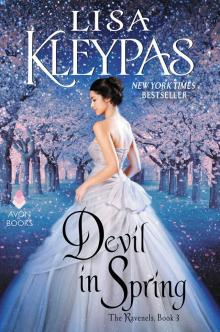 Devil in Spring
Devil in Spring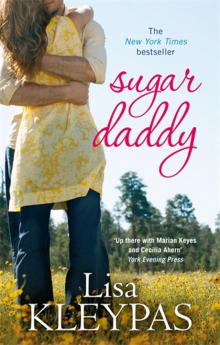 Sugar Daddy
Sugar Daddy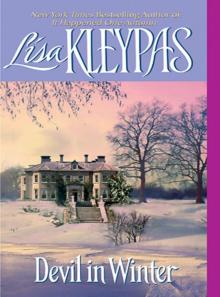 Devil in Winter
Devil in Winter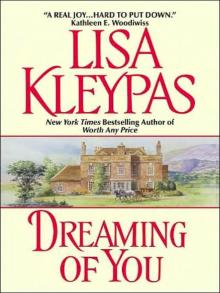 Dreaming of You
Dreaming of You Christmas Eve at Friday Harbor
Christmas Eve at Friday Harbor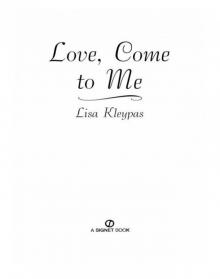 Love, Come to Me
Love, Come to Me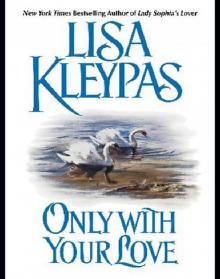 Only With Your Love
Only With Your Love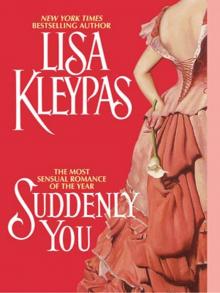 Suddenly You
Suddenly You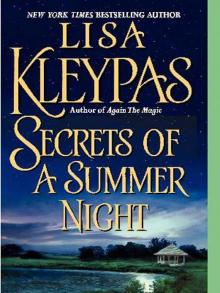 Secrets of a Summer Night
Secrets of a Summer Night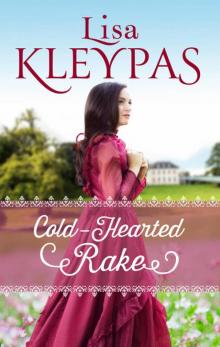 Cold-Hearted Rake
Cold-Hearted Rake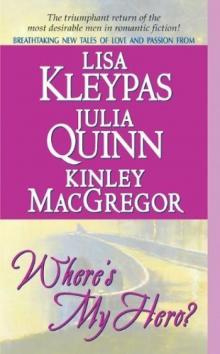 Where's My Hero?
Where's My Hero?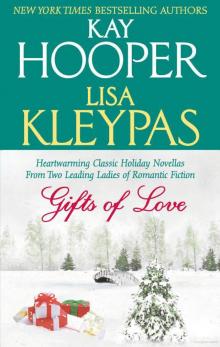 Gifts of Love
Gifts of Love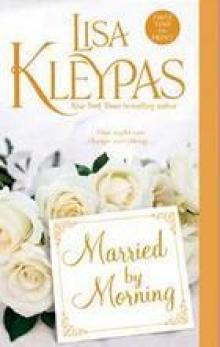 Married by Morning
Married by Morning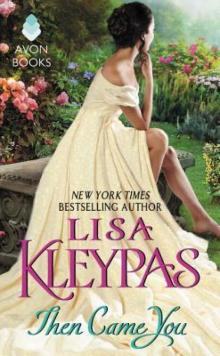 Then Came You
Then Came You Wish List
Wish List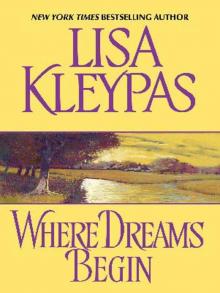 Where Dreams Begin
Where Dreams Begin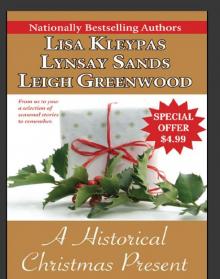 A Historical Christmas Present
A Historical Christmas Present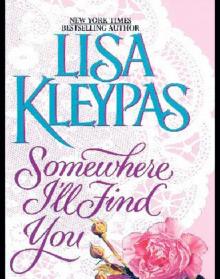 Somewhere I'll Find You
Somewhere I'll Find You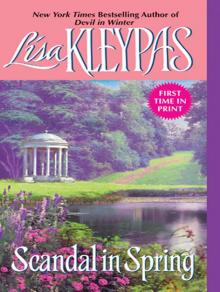 Scandal in Spring
Scandal in Spring Someone to Watch Over Me
Someone to Watch Over Me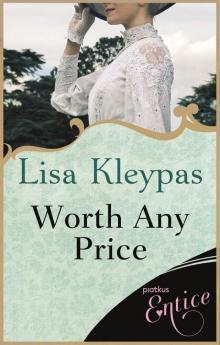 Worth Any Price
Worth Any Price Prince of Dreams
Prince of Dreams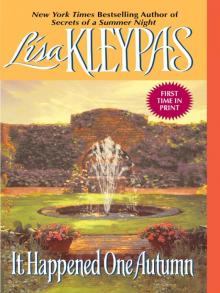 It Happened One Autumn
It Happened One Autumn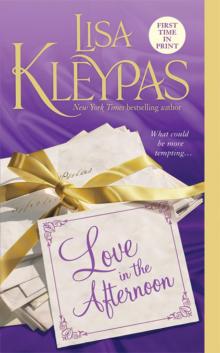 Love in the Afternoon
Love in the Afternoon Devil's Daughter
Devil's Daughter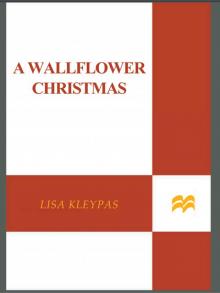 A Wallflower Christmas
A Wallflower Christmas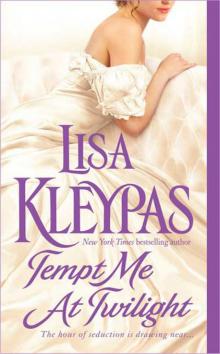 Tempt Me at Twilight
Tempt Me at Twilight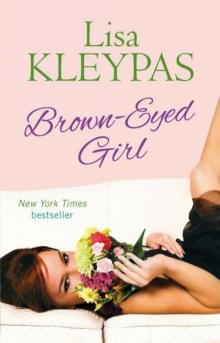 Brown-Eyed Girl
Brown-Eyed Girl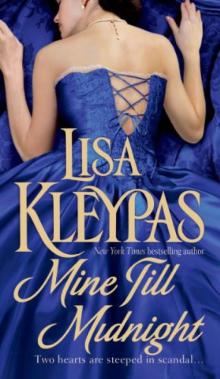 Mine Till Midnight
Mine Till Midnight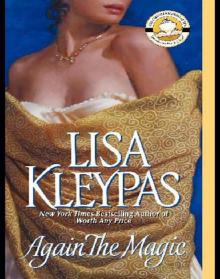 Again the Magic
Again the Magic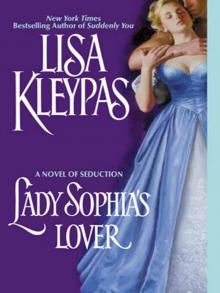 Lady Sophia's Lover
Lady Sophia's Lover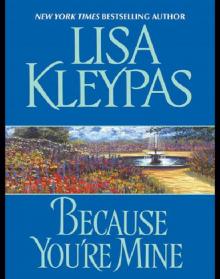 Because You're Mine
Because You're Mine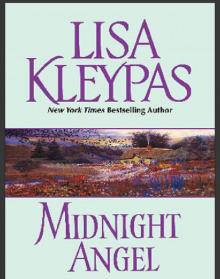 Midnight Angel
Midnight Angel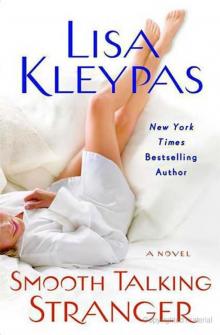 Smooth-Talking Stranger
Smooth-Talking Stranger Blue-Eyed Devil
Blue-Eyed Devil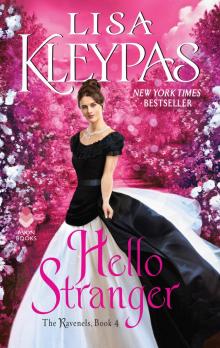 Hello Stranger
Hello Stranger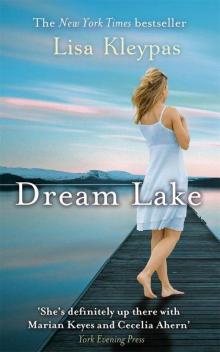 Dream Lake
Dream Lake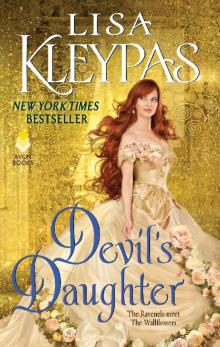 Devil's Daughter: The Ravenels Meet the Wallflowers
Devil's Daughter: The Ravenels Meet the Wallflowers A Christmas to Remember
A Christmas to Remember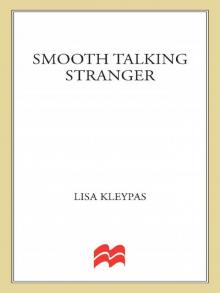 Smooth Talking Stranger
Smooth Talking Stranger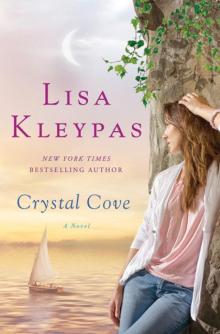 Crystal Cove
Crystal Cove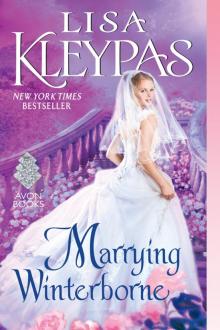 Marrying Winterborne
Marrying Winterborne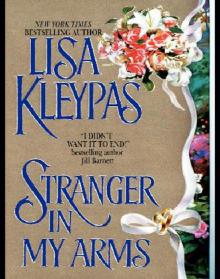 Stranger in My Arms
Stranger in My Arms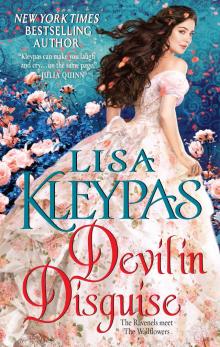 Devil in Disguise
Devil in Disguise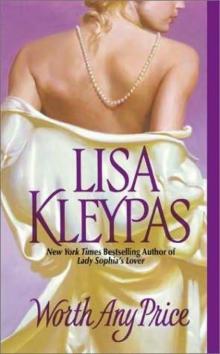 Worth Any Price bsr-3
Worth Any Price bsr-3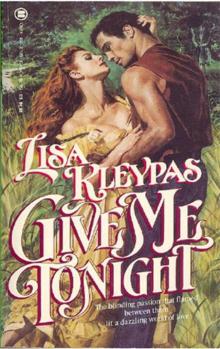 Give Me Tonight
Give Me Tonight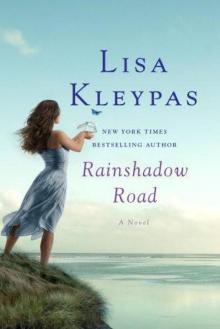 Rainshadow Road fh-2
Rainshadow Road fh-2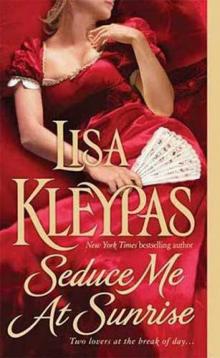 Seduce Me At Sunrise
Seduce Me At Sunrise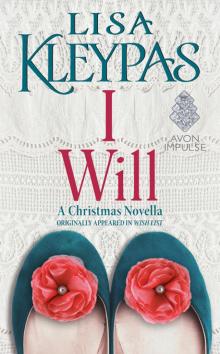 I Will
I Will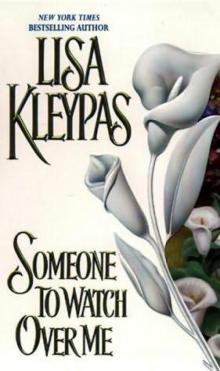 Someone to Watch Over Me bsr-1
Someone to Watch Over Me bsr-1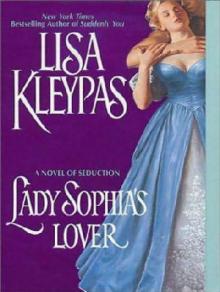 Lady Sophias Lover bsr-2
Lady Sophias Lover bsr-2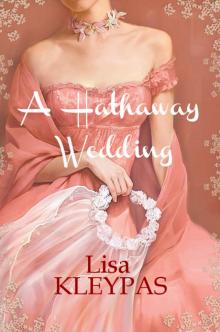 A Hathaway Wedding
A Hathaway Wedding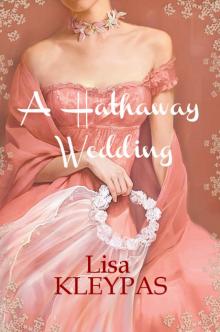 A Hathaway Wedding (Hathaways Bk2.5)
A Hathaway Wedding (Hathaways Bk2.5)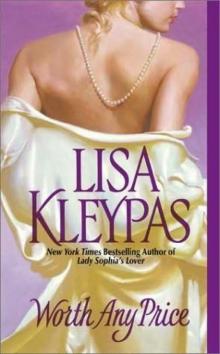 Worth Any Price - Bow Street 3
Worth Any Price - Bow Street 3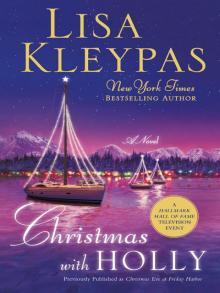 Christmas with Holly
Christmas with Holly